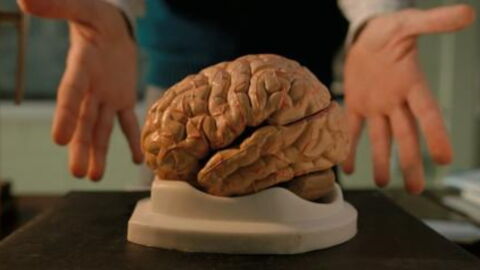No one particularly likes talking about it, but it will inevitably become a part of our lives at one point or another. Death has a way of giving us cold sweats, and yet we can't get enough information about it. Is there a life after death? Does it hurt? Some doctors recently revealed which of our senses and abilities are the first and last to expire with us when we pass away, and it's quite unexpected.
Discover our latest podcast
Our ability to feel hunger is the first to go
Dying a natural death is a process. Our senses and functions go one by one, and they allow doctors to assess where we stand in the process. As dying patients are often too drowsy or confused to tell us what is actually happening as they are about to pass away, we rely on doctors to shed light on this mystery. Dr. James Hallenbeck, a palliative-care specialist at Stanford University wrote a book on the subject, entitled Palliative Care Perspectives. He explains:
First hunger and then thirst are lost. Speech is lost next, followed by vision.
In the last hours of their life, dying patients often tend to close their eyes and appear to be sleeping, which is their brain's way of coming to terms with the approaching end of their earthly adventure. They can end up in a sort of 'dream state' during which they are neither truly alive, nor actually dead.
The last sense to go is hearing
According to Dr. Hallenbeck, the last senses to go are usually hearing and touch. Dr. David Hovda spoke to The Atlantic about this natural process, and why certain senses expire before others. He said:
As the brain begins to change and start to die, different parts become excited, and one of the parts that becomes excited is the visual system - and so that’s where people begin to see light.
This is a groundbreaking discovery, as it means patients can still hear what is going on around them, even if they can no longer see or talk. They are stuck in their own bodies, paralysed but still present. According to a study published in Scientific Reports, hearing is the last sense to go as it a passive sense. Dr. Zachary Palace said:
We encourage families to talk and share their last thoughts, love, and support with their loved ones, because even though the blood pressure is dropping and they’re fading out, they can hear what we’re saying.
Read more:
⋙ Does a dying person know that they are about to die? Let's find out
⋙ When you are dying your speech is the first sense to go, says expert
⋙ Visioning: Hospice nurse explains this common phenomenon which happens weeks before dying
Sources used:
Mirror: Doctors reveal the first sense people lose when they are hours from death
The Atlantic: What It Feels Like to Die
Everyday Health: 10 Things Your Doctor Won’t Tell You About Dying
Scientific Reports: Electrophysiological evidence of preserved hearing at the end of life















